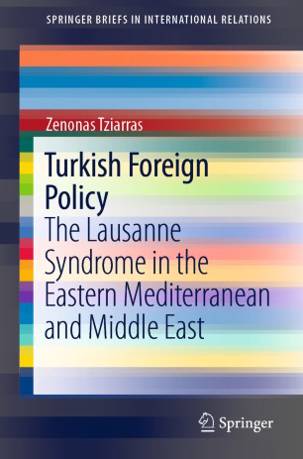
In the context of rapid developments in Turkey and its broader geopolitical environment over the past decade, this book examines and conceptualises Turkey’s changing foreign policy towards a more assertive and revisionist paradigm.
More specifically it details the rhetorical and practical-political content of what is termed ‘Lausanne Syndrome’; namely, Turkey’s efforts in recent years – under the AKP government – to revise the geopolitical status quo brought about by the Treaty of Lausanne (1923) in its broader neighbourhood.
By employing a Neoclassical Realist theoretical framework and paying particular attention to ideational factors, the book argues that, contrary to the more widely known ‘Sèvres Syndrome’, which predicts a more cautious brand of Turkish foreign policy, the ‘Lausanne Syndrome’ is associated with a different political-ideological current and predicts a more revisionist type of foreign policy behaviour, even though it has emerged out of the same historical circumstances and been triggered by the same external geopolitical factors. The impact of the ‘Lausanne Syndrome’ on Turkey’s foreign policy behaviour is subsequently tested in four case studies from the Eastern Mediterranean and the Middle East: Cyprus, Libya, Syria, and Iraq.
See here for more.





